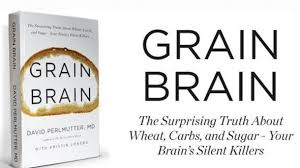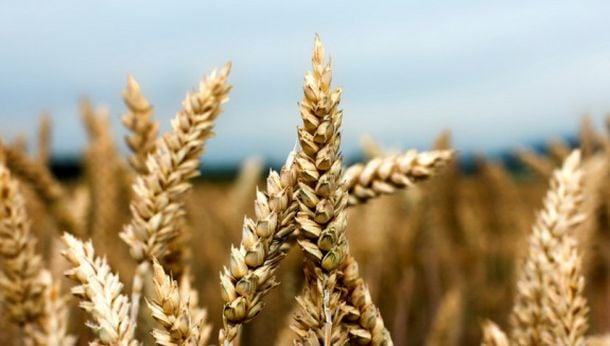For a start, they can get things in perspective, said progressive speakers at the 2015 Whole Grains Summit in Portland, Oregon.
Having problems watching the video? Watch it on YOUTUBE instead.
WE’VE BEEN GROWING – AND EATING - GRAINS FOR A LONG TIME
First, Dr Fred Brouns, professor in the Faculty of Health, Medicine and Life Sciences at Maastricht University (and author of the recent paper in the Journal of Cereal Science, Does wheat make us fat and sick?) addressed the notion – gaining traction in popular literature – that we’ve only been eating grains for 10,000 years and our bodies have not adapted to them, especially those containing gluten.

In fact, evidence suggests that Neanderthals were eating wheat, rye and barley 45,000 years ago, he pointed out, while there is also evidence of large-scale processing of cereals in Israel 23,000 years ago. Similarly, before cereals were selected for agronomic traits and cultivated on a large scale, early humans ate wild grass seeds, cereals and anything else possessing useful calories.
And even if widespread consumption of grains did only began a few thousand years ago, our bodies have developed mechanisms to digest and utilize them pretty efficiently - with the exception of people with celiac disease, he said.
MOST PEOPLE CAN TOLERATE GLUTEN
As for gluten, said Cynthia Harriman from the Whole Grains Council and Oldways, fewer than 1% of people have celiac disease, while the scientific literature suggests the percentage with NCGS/non-celiac gluten sensitivity (people who react negatively to some gluten-containing grains, but do not have celiac disease or wheat allergy), ranges from 0.5% to 6% (although we can’t be sure because there are no validated biomarkers or diagnostic tests).

More recent research suggests that people with NCGS may in fact be sensitive to fermentable carbohydrates in some gluten-containing products, such as oligofructose and arabinoxylan, said Dr Matt Riley, MD, Northwest Pediatric Gastroenterology, LLC, and exclusion of these and other fermentable oligo-, di- and monosaccharides as well as polyols; (‘FODMAPs’) could help tackle their digestive discomfort.
In other words, the jury is still out on whether gluten proteins or other factors are involved in the aetiology of gluten sensitivity in non-celiac patients, he added.
But to put all this into perspective, said Harriman, 93% to 98% of people “do not have a problem with gluten at all”.
She also noted that many grains (rice, corn, oats (if certified GF), quinoa, sorghum, teff, millet, amaranth, buckwheat) do not contain gluten.
CARBS ARE NOT KILLING US
While highly refined carbs can cause blood sugar spikes and are often used in foods that contain high levels of salt, sugar and fat; grains per se are not the enemy, said Dr David Jacobs from the University of Minnesota.

Indeed, whole grains – which contain the bran, germ and endosperm – are associated with better health outcomes, he added: “The evidence is consistent and strong for the beneficial effects of whole grain foods on chronic disease, including cardiovascular disease and other conditions thought to be of inflammatory origin.”
A 2012 meta-analysis of 45 prospective cohort studies and 21 randomized-controlled trials (RCT) in the Journal of Nutrition found that those consuming more whole grains were significantly less likely to develop heart disease and type two diabetes, while there was also an inverse relationship between whole grain intake and weight gain.
GRAIN BRAIN?
As for cognitive function, a large study following 3,800 Americans aged over 65 in Utah and published in the American Journal of Clinical Nutrition in 2013 found that, "Whole grains and nuts and legumes were positively associated with higher cognitive functions and may be core neuroprotective foods common to various healthy plant-centered diets around the globe."
Likewise, adherence to the MIND (Mediterranean-DASH Intervention for Neurodegenerative Delay) diet, which includes 3+ servings of whole grains a day, has been shown to have neuroprotective effects .
WHEAT CONSUMPTION IS NOT ASSOCIATED WITH BELLY FAT

Similarly, said Judi Adams from the Wheat Foods Council, wheat consumption is not associated with higher levels of belly fat. “The French eat one and half times as much wheat as we do in the US and obesity rates there are a third of ours."
Meanwhile, wheat consumption in the US peaked in the 19th century, she noted, while obesity rates in countries with very high consumption of wheat, such as Morocco, are much lower than they are in the US.
INFLAMMATION
When it comes to inflammation, meanwhile, whole grains are not the problem, but part of the solution, said Harriman, as they have been shown to reduce markers of inflammation, while observational trials show people who eat more whole grains have a reduced risk of heart disease and diabetes.

Likewise, while some highly refined grains can make your blood sugar spike – then plummet - intact whole grains are low GI foods that provide a steady, slow release of glucose.
GMO WHEAT?
As for the claim that modern wheat is genetically engineered, this is simply false, said Harriman. There is no GM wheat commercially available in the US today.
MODERN WHEAT DOES NOT HAVE MORE GLUTEN

USDA debunked claims that modern wheat has more gluten in the Journal of Agricultural and Food Chemistry in 2013. However, gluten intakes have gone up in the US as bakers add more vital wheat gluten to bread and other products in part to speed up the baking process, said Harriman.
Keep an eye out for other stories from the 2015 Whole Grains Summit (hosted by the Moore family Center at Oregon State University and the Grains for Health Foundation) on FoodNavigator-USA this week.
Click HERE to read our report on sprouted grains.
